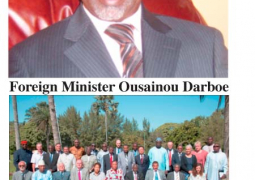The aim of every project, be it government or non-governmental organizations, is to meet the needs of the people in order to address the general plight of the masses.
Most of the time, we have seen governments and NGOs signing projects on behalf of the people they serve in order for the projects to address a specific need of society.
Projects help a lot in addressing the socio-economic development needs of a country.
However, most of the developing countries are failing in project implementation, and this is due to the way and manner in which projects are being managed.
Sometimes, NGOs are established mainly to help in areas in which they feel governments cannot meet a specific need of society. This is the time when they would lend their support.
However, today one of the biggest problems we are faced with in
The reason why most of our projectsfail is that, at times, the real beneficiaries of the projects are not fully involved during the initial stage of the project implementation and, as a result of this, communities also feel reluctant to contribute positively towards the projects.
Another aspect of these failures is due to lack of monitoring and proper evaluation of the projects.
Most of the project monies are also heavily spent on administration and purchasing expensive vehicles, instead of meeting the needs and aspirations of the people the project was meant for.
For NGOs there are some doing extremely well in helping the poor, and complementing the government’s efforts.
However, there are also certain NGOs whose personal agenda is to use communities, solicit funding on their behalf mainly to enrich themselves at the expense of the people.
We strongly believe that such kinds of NGOs should be stopped from operating, because they are not serving the people but instead their selfish interest.
We would like to commend the Community Driven Development Project in The Gambia for the good work they are doing with the communities in the country in supporting them to meet their needs.
This is a project that would allow communities to identify their development projects at community and ward level, which would later be approved for the communities to start implementation.
This is another way of empowering the communities to take ownership of the projects.
If developing countries want their projects to be successful, they have to focus on projects that would be of benefit to the communities they target.




